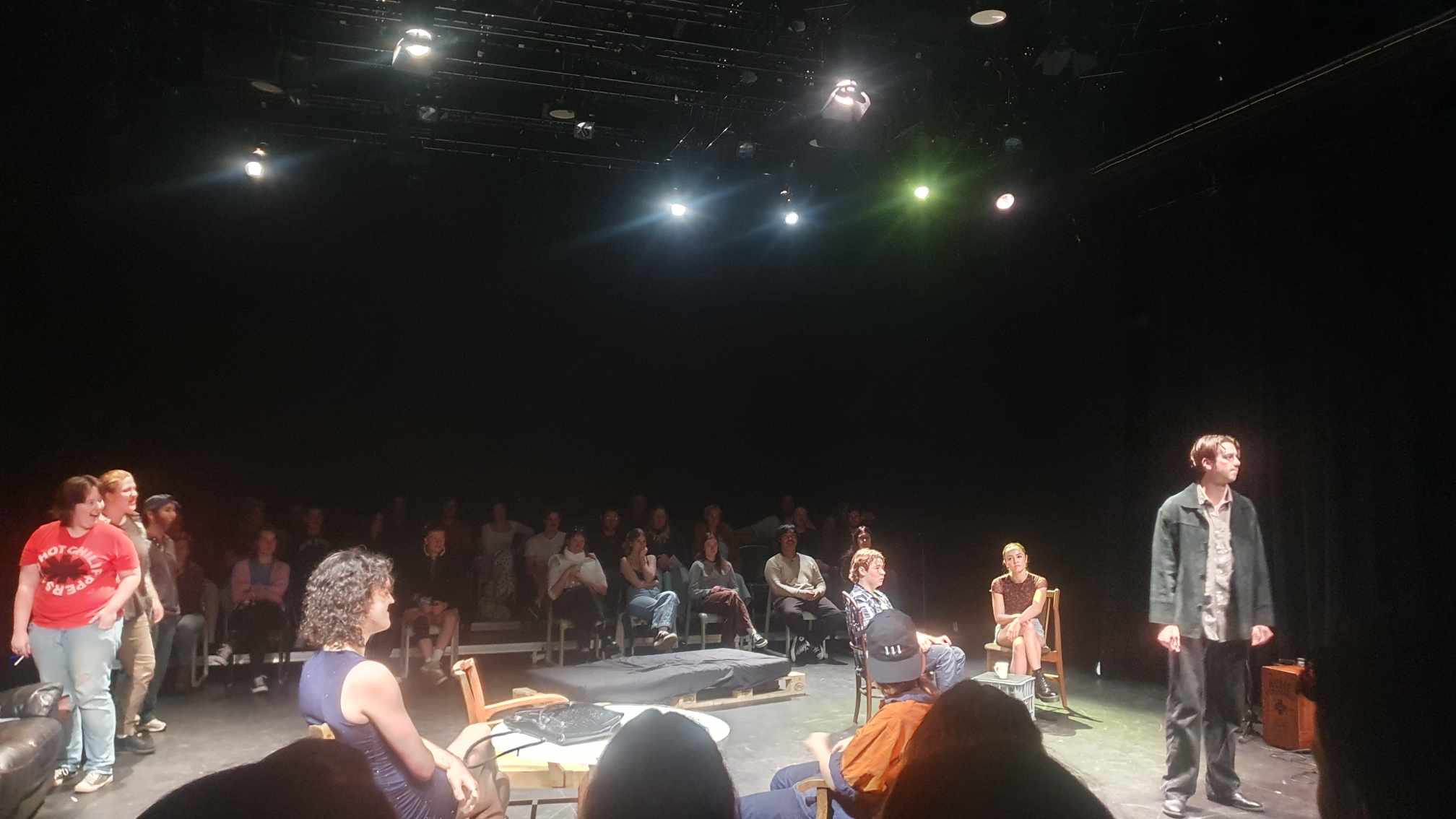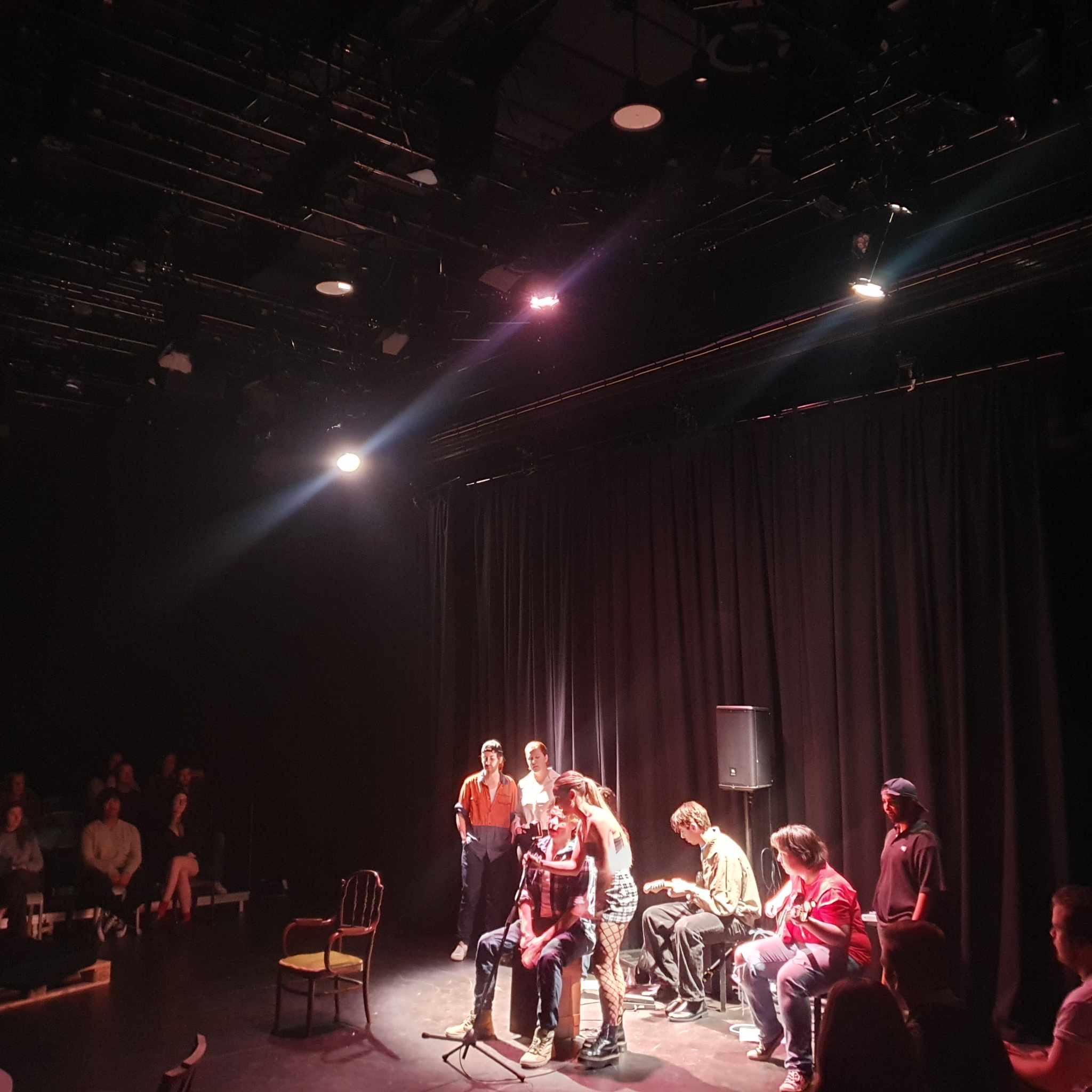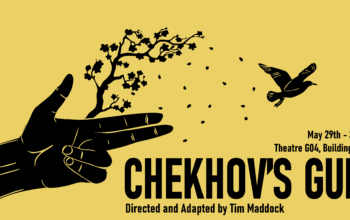The other night I got to see UOW perform a play called Saved. This was not an original UOW production, rather it was an adaption of Edward Bond’s Saved (1965). As it says on the UOW performances listing, Edward Bond tragically passed away during the first week of UOW’s rehearsal. While I highly recommend that you go see our adaption of it –because it is shockingly entertaining and because the acting of our 3rd Year theatre and performance students is excellent, immersive, and hilarious – I’m still interested in the question as to why UOW chose this particular play.
Saved is set in 1960’s, London. Both the original and this adaptation hover around the underworld of the underclass (working-class) who are only blue collared and unfortunately steeped in desperation to make ends meet, or pay rent at the end of the week, or just have a roof over their heads. Of course, a history of violence orbits their psyches, and this is what Saved wants to convey, among other things.
Like American Psycho – you can read my thoughts on the Rising Arts Productions recent adaption here. Saved is renowned for its censorship. The exact contours as to why may involve some kind of spoilers. So, SPOILER ALERT(?), the working-class characters in this play aren’t the nicest folk, but they are downtrodden, a product of such strenuous circumstances and awful behaviour passed down from their fathers. Any glimpse of their humanity makes them seem lovable, but still, half-way through the play a baby is stoned to death. SPOILER END. Apparently, Bond got this idea from watching neglected kids hurl stones at squirrels in the park, so the play’s representation of violence is used for dramatic effect, to really shock the audience into seeing what humans are capable of if we don’t foster a society that treats everyone fairly.
UOW’s adaption numbs some of the more horrific scenes by featuring its cast perform musical cues, over-dramatising the sounds of the action so as to appear less graphic, less frontal and realistic, reminding you that it’s only a production. The performance is also bookended by musical numbers, punk rock songs reminiscent of the British working-class kind of punk that exploded in the 70s – think Sex Pistols et al. What’s strange is how these songs are performed in an almost apathetic way, further reminiscent of the 80’s British sitcom The Young Ones which satirizes the youth/punk rebellion of the time.
SPOILERS (once again), the adaption’s ending is slightly altered from Bond’s original. In both, the ending is a scene featuring only a single line of dialogue “fetch me a hammer” as the characters are seen slowly going about their daily routines, insinuating that the family unit remains somewhat intact – Bond described this ending as “almost irresponsibly optimistic.” This adaption, however, is a bit more unsettling, having one of the characters crawl along the floor to fetch said hammer, almost writhing in pain, and this all while lights flash with surreal colours and a montage of theme songs from various sitcoms of the 80’s & 90’s are heard speeding into a cacophony of unsettling noise. SPOILER END.
I left this performance feeling unsettled but affected. The synopsis for this adaption says it is “steeped in Marxist sentiment,” and the performance signifies its anachronisms – it could be set in the 2010’s as it features transgender representation and Red Hot Chili Peppers shirts. I guess the question I have is: how does an such unsettling representation of working-class life relate to our current socio-cultural situation? What are the exact causes for all these characters’ misery? What do TV sitcoms have to do with it all? It’s all too complex to adequately explain here. I just hope the audiences get the real sentiment: support worker rights and strike! Strike! STRIKE!

Image Credit: Ronan Colley




